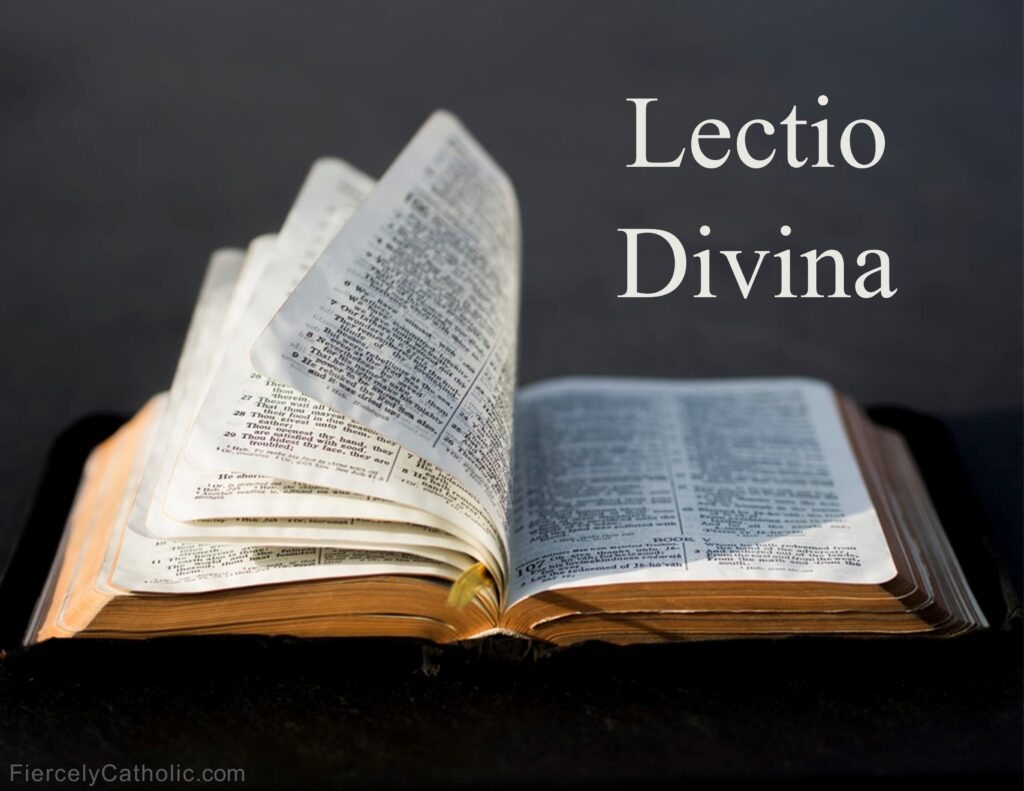
Reading and reflecting on Sacred Scripture or other spiritual texts is an ancient way of praying.
The practice of lectio divina dates back to the 3rd century AD and has developed over the centuries. Lectio divina is a Latin term that means “divine reading”.
It has traditionally been used by priests, monks, and nuns for a fuller and more rewarding prayer life but is recommended for the laity also.
The practice of lectio divina consists of reading, meditation, praying, and contemplating on Scripture. It can be done alone or in a group.
Different from a traditional Bible study, lectio divina is a more intimate experience with God.
An epic, old-school form of prayer:
Helping to follow Jesus better throughout the day:
Scripture is not meant to be rushed through:
It is especially necessary that listening to the Word of God should become a life-giving encounter, in the ancient and ever valid tradition of lectio divina, which draws from the biblical text the living word which questions, directs and shapes our lives.
Pope John Paul II, Novo Millennio Ineunte, January 6, 2001
Engaging with divinely inspired Sacred Scripture:
The scene from Sacred Scripture may not be perfect:
The Lord called Samuel again, a third time. And he got up and went to Eli, and said, “Here I am, for you called me.” Then Eli perceived that the Lord was calling the boy. Therefore Eli said to Samuel, “Go, lie down; and if He calls you, you shall say, ‘Speak, Lord, for your servant is listening.’” So Samuel went and lay down in his place. Now the Lord came and stood there, calling as before, “Samuel! Samuel!” And Samuel said, “Speak, for your servant is listening.”
1 Samuel 3: 8-10
Discovering what God is saying to you:
Entering into a conversation with God:
Meditation engages thought, imagination, emotion, and desire. This mobilization of faculties is necessary in order to deepen our convictions of faith, prompt the conversion of our heart, and strengthen our will to follow Christ. Christian prayer tries above all to meditate on the mysteries of Christ, as in lectio divina or the rosary. This form of prayerful reflection is of great value, but Christian prayer should go further: to the knowledge of the love of the Lord Jesus, to union with Him.
Catechism of the Catholic Church 2708
Changed by careful reading of Scripture with an open heart:
Training the heart to seek what is good and holy:
Practicing lectio divina is encountering fire:
The Truth, Goodness, and Beauty of the Catholic Church
Living as a child of God:
Share this page with friends and family to start a conversation about your faith.
Don’t miss a post. Learn more about the Catholic Church and strengthen your Catholic faith.
Find more Fiercely Catholic video issues here.
Subscribe here.


